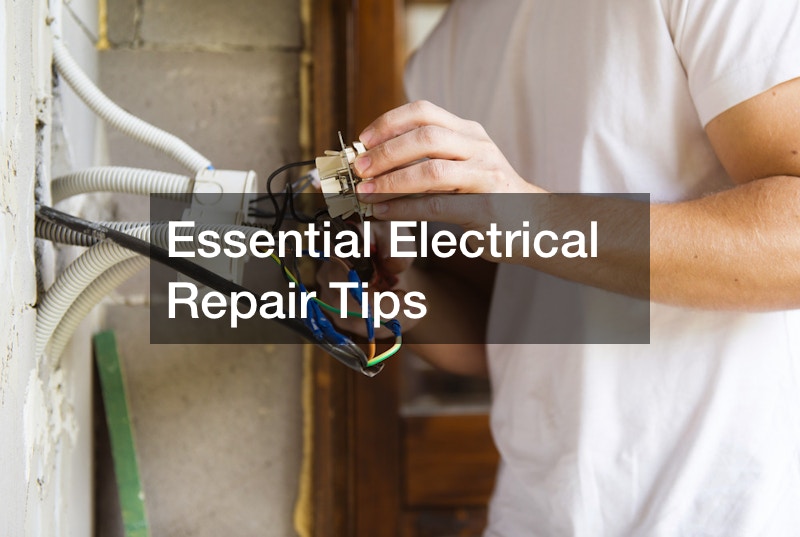Electrical repairs are an integral part of maintaining the safety and functionality of your home’s electrical system. Before attempting any repairs, prioritize safety. Always turn off the power to the area you’ll be working on by flipping the circuit breaker or removing the fuse.
Use insulated tools and wear protective gear like gloves and safety goggles. If you’re unsure or the repair seems complex, it’s best to consult a licensed electrician.
Accurately diagnosing electrical issues is crucial for effective repairs. Identify the root cause of the problem rather than just addressing the symptoms.
Use a multimeter to test circuits, outlets, and switches to determine if they function properly. This will help you target the specific repair needed and prevent further damage.
While homeowners can do minor repairs like replacing a switch or an outlet cover, know your limits. A qualified electrician should handle complex repairs involving the main electrical panel. Attempting repairs beyond your expertise can lead to safety hazards or worsen the problem.
Regular maintenance can help prevent the need for major repairs. Inspect your electrical system periodically for signs of wear, like frayed wires or loose connections.
Clean dust and debris from outlets and ensure proper grounding. Additionally, consider scheduling professional electrical inspections to identify potential issues before they become problematic.
Adhere to local electrical codes and regulations when performing electrical repairs. They’re in place to ensure safety and prevent hazards. Familiarize yourself with the relevant codes to ensure your repairs meet the required standards.
.

